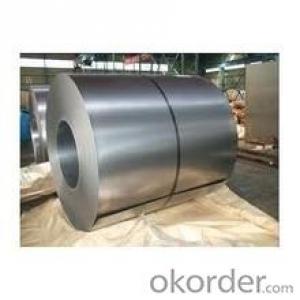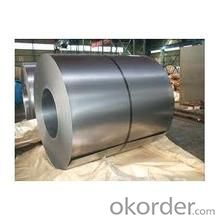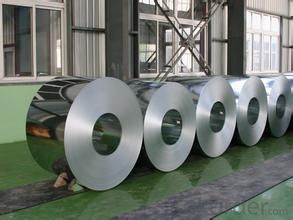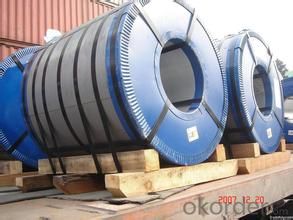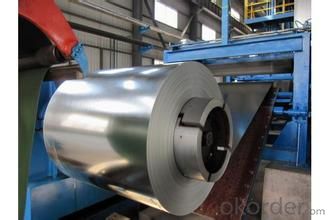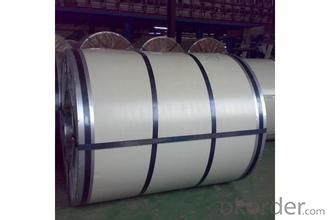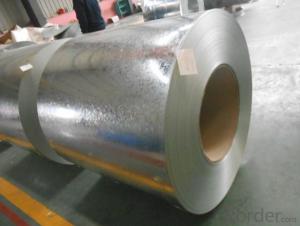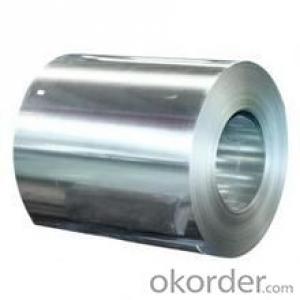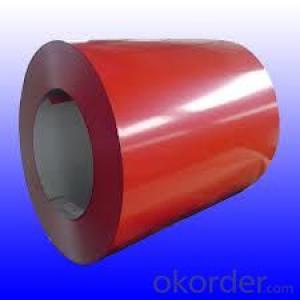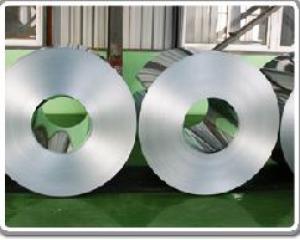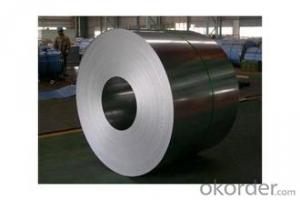Hot-Dip Galvanized/ Aluzinc Steel in China
- Loading Port:
- Tianjin
- Payment Terms:
- TT OR LC
- Min Order Qty:
- 30 m.t.
- Supply Capability:
- 5000000 m.t./month
OKorder Service Pledge
OKorder Financial Service
You Might Also Like
Description:
1.Mateials:SGCC,DX51D / DX52D /S250,280GD
2.Size:width:600-1250mm(900mm,1215mm,1250mm,1000mm the most common)
thickness:0.15-2.0mm
length:1000-6000mm,as your require
3.Zinc coating :60-180g( as required)
4.Coil id:508mm
5.Coil weight: 3-5MT(as required)
6. Surface:regular/mini/zero spangle, chromated, skin pass, dry etc.
Service:
1,on time delivery
2,high quality with competitive price
3,good service
4,long-term cooperation
5, rely on honors
Hot-dip galvanized steel coils are available with a pure zinc coating through the hot-dip galvanizing process. It offers the economy, strength and formability of steel combined with the corrosion resistance of zinc. The hot-dip process is the process by which steel gets coated in layers of zinc to protect against rust. It is especially useful for countless outdoor and industrial applications.
- Q: What are the common coil tests performed for quality control?
- Some common coil tests performed for quality control include tension tests, bend tests, hardness tests, and dimensional checks. These tests help to ensure that the coils meet the required specifications and are of high quality.
- Q: What are the different types of steel coil grades and specifications?
- There are several different types of steel coil grades and specifications available in the market. These grades and specifications are designed to meet various industry requirements and applications. Some of the commonly used steel coil grades and specifications are: 1. Hot Rolled Steel Coils: These coils are produced by heating the steel above its recrystallization temperature and then rolling it at a high temperature. Hot rolled steel coils are commonly used in applications where dimensional accuracy and surface finish are not critical. 2. Cold Rolled Steel Coils: Cold rolled steel coils are produced by further processing hot rolled coils through cold reduction mills. This process results in improved surface finish, tighter tolerances, and higher strength compared to hot rolled coils. Cold rolled steel coils are widely used in automotive, construction, and electrical industries. 3. Galvanized Steel Coils: Galvanized steel coils are coated with a layer of zinc to protect them from corrosion. This process, known as galvanization, enhances the durability and longevity of the steel coils. Galvanized steel coils are commonly used in applications such as roofing, fencing, and automotive body parts. 4. Stainless Steel Coils: Stainless steel coils are made from a combination of iron, chromium, and other elements that provide excellent corrosion resistance and high strength. These coils are widely used in industries such as food processing, chemical, and medical, where hygiene and corrosion resistance are critical. 5. High-strength Low-alloy (HSLA) Steel Coils: HSLA steel coils are designed to have higher strength and improved formability compared to conventional carbon steels. These coils are commonly used in structural and transportation applications, where weight reduction and high strength are required. 6. Electrical Steel Coils: Electrical steel coils, also known as silicon steel or transformer steel, are specifically designed for use in electrical equipment such as transformers, motors, and generators. These coils have low core losses and high magnetic permeability, making them ideal for efficient energy transfer. 7. Tool Steel Coils: Tool steel coils are specially formulated to have high hardness, wear resistance, and toughness. These coils are commonly used in the manufacturing of cutting tools, dies, and molds. These are just a few examples of the various types of steel coil grades and specifications available in the market. The selection of the appropriate grade and specification depends on the specific application requirements, such as strength, corrosion resistance, formability, and surface finish.
- Q: How are steel coils used in the production of storage containers?
- In the production of storage containers, steel coils play a vital role. These coils, manufactured from high-quality steel, are crucial for constructing the walls, floors, and roofs of the containers. To begin the process, the steel coil is uncoiled and passed through a series of machines that cut and shape it into the desired dimensions. Then, the steel is transformed into panels, which are either welded or riveted together to form the container's structure. The strength, durability, and resistance to corrosion make steel coils an excellent material for storage containers. They provide a robust framework that can endure heavy loads and harsh environmental conditions. Moreover, the coils can be easily molded and customized to meet specific size and shape requirements. Once the structure of the container is complete, it is typically coated with a protective layer of paint or other coatings to further enhance its durability and resistance against weather elements. This ensures that the container remains unaffected by moisture, UV rays, and other external factors that could cause deterioration. All in all, steel coils are of utmost importance in the production of storage containers as they offer the necessary strength and durability required to safely store and transport a wide array of goods and materials.
- Q: I know of the cheaper steel shot for waterfoul hunting, but there is more expensive shot available. Is it worth the money, how much more distance are we talking, and what do you like the best?(brand name)
- All buckshot I can think of at the moment is lead. Steel shot is used for waterfowl hunting because lead is illegal for that use. They don't want all that lead shot falling back in the water and causing lead contamination. There would be no reason to make steel buckshot, and it would be pretty ineffective. Steel is much less dense than lead. So a steel 00 pellet would weigh much less than a lead 00 pellet. So it would carry a lot less energy to a target. Buckshot is used for just that, Bucks. Well large game like deer, bear, and for self defense. In uses like that you need that extra energy. Lead shot is used for everything, except where lead shot is illegal, which is waterfowl hunting. Steel shot really isn't very popular anymore. Waterfowl shot just can't be lead. It doesn't have to be steel. They've come out with other stuff, like bismuth, that is a lot more dense than steel, but still not as dense as lead.
- Q: Can steel coils be coated with zinc?
- Yes, steel coils can be coated with zinc through a process called hot-dip galvanization or electroplating. This coating of zinc helps protect the steel from corrosion and rust, extending its lifespan and improving its durability.
- Q: i wanna know all the similarities between iron and steel
- Steel is an iron alloy which contains between 0.2 percent and 2.0% carbon. Modern steels nearly always contain 0.5% - 1% manganese as well. (though technically the manganese doesn't need to be present for it to be considered steel.) Above 2.1% is usually called cast iron. Cast iron is brittle, but has a lower melting point than steel. Below 0.2% percent carbon is considered commercially pure iron. Pure iron is soft and malleable like copper, but it has low strength. Adding small amounts of carbon increases it's strength dramatically.
- Q: How are steel coils used in the production of railway tracks?
- Railway tracks rely heavily on steel coils, which are indispensable in their production. These coils, typically made from top-notch steel, are utilized to create the rails that constitute the bedrock of the tracks. The process commences with the unwinding of the steel coils, which are then fed into a sequence of machines that mold and fashion them into the desired rail profile. Initially, the steel coils are passed through a rolling mill, where they undergo gradual flattening and shaping, thereby transforming into elongated steel strips. This technique, known as hot rolling, involves heating the steel to high temperatures to enhance its pliability. The rolling mill exerts substantial pressure on the steel, progressively molding it into the desired rail shape. Once the steel coils have been rolled into the requisite form, they are subsequently severed into individual rail lengths. The length of these rails may vary depending on the specifications of the railway track being produced. The rail lengths then undergo further processing to eliminate any flaws and straighten them out. Following this initial shaping and processing, the rails undergo a series of supplementary treatments. These treatments may entail heat treatment to bolster their strength and durability, as well as various surface treatments to prevent corrosion and wear. Once the rails have undergone all the necessary treatments, they are ready for installation on the railway track. They are laid out meticulously in a predetermined pattern, with each rail securely fastened to the sleepers or ties. The continuous length of steel provided by the coils ensures a seamless and uniform track, enabling trains to travel smoothly and safely. In conclusion, steel coils are crucial components in the production of railway tracks. They are utilized to manufacture the rails that serve as the foundation of the tracks, guaranteeing durability, strength, and a smooth surface for trains to traverse. The use of high-quality steel coils in this process is essential to ensure the safety and efficiency of railway transportation.
- Q: I know aluminum is lighter but I'm looking at a 01 bianchi grizzly mountain bike which is steel. I used to ride a specialized stumpjumper m4 which was aluminum. It was quite light so I don't know if I'll like a bit heavier bike but overall what is better from those who have had both?
- Im a huge fan of steel frames. #1. they dont feel like they are bouncing off things like aluminum #2. they absorb more vibrations #3. they can be fixed if you wreck them #4. They dont weigh much more (if anymore) then aluminum #5. you are in a very limited clique #6. a steel frame will far out-live an aluminum frame. #7. it doesnt sound like your riding a tin can. #8. break a hose or cable guide, and you simply can take it down to your local muffler shop and have them weld one back on.. an aluminum frame is so fragile it will probably have to be replaced. Aluminum frames do have their pluses. #1. they are very stiff #2. you dont have to worry about rust #3. every company on the planet makes aluminum frames so they are easy to find... #4. looks. because aluminum is so stiff, there are some very radical frame designs. steel frames are just boring to look at. if you like steel frames, you wont want to go to aluminum. if you like aluminum, you could consider steel.
- Q: What are the different certifications required for steel coil manufacturers?
- Steel coil manufacturers may be required to obtain various certifications in order to operate in the industry, ensuring that they meet specific quality and safety standards. One widely recognized certification is the ISO 9001, an international standard for quality management systems. This certification demonstrates the manufacturer's commitment to consistently meeting customer and regulatory requirements through the implementation of effective processes and procedures. Another crucial certification is the ISO 14001, which focuses on environmental management systems. By obtaining this certification, manufacturers prove their dedication to implementing sustainable practices and minimizing their environmental impact. In terms of safety, manufacturers may need certifications like the OHSAS 18001 or ISO 45001, which are standards for occupational health and safety management systems. These certifications guarantee that the manufacturer has established proper processes and controls to ensure the well-being of their employees and stakeholders. Additionally, manufacturers may require industry-specific certifications such as the American Institute of Steel Construction (AISC) certification, which is specific to structural steel fabrication and erection. This certification ensures that the manufacturer adheres to the best practices in the industry. Furthermore, manufacturers may need certifications related to specific product standards, such as the American Society for Testing and Materials (ASTM) certification. This certification guarantees that the manufacturer's products meet specific quality and performance requirements. Acquiring these certifications is crucial for steel coil manufacturers as they provide customers with confidence in the quality, environmental responsibility, and adherence to industry standards of their products.
- Q: What are the common methods of inspecting steel coils for quality control?
- Steel coils are inspected for quality control purposes using various methods. These methods involve visual inspection, dimensional measurement, and non-destructive testing. To inspect steel coils, visual inspection is a commonly used and straightforward method. This entails visually examining the surface of the coils for any visible defects such as scratches, dents, or discoloration. Visual inspection also includes checking the labeling, packaging, and identifying signs of corrosion or damage. Another crucial method to ensure quality is dimensional measurement. This involves measuring different dimensions of the coils, such as thickness, width, and length, to ensure they meet the required specifications. Tools like calipers, micrometers, or laser measurement devices can be utilized for dimensional measurement. Non-destructive testing (NDT) techniques are also widely employed in steel coil inspection. NDT methods enable the detection of internal and surface defects without causing damage to the material. Ultrasonic testing is a common NDT technique used for steel coil inspection. It works by sending high-frequency sound waves through the coil and analyzing the reflected waves to identify any defects. In addition, magnetic particle testing and dye penetrant testing are used to detect surface cracks or defects in the coils. Apart from these methods, other quality control practices may include chemical analysis to ensure the steel's composition meets the required standards, mechanical testing to assess the strength and hardness of the material, and corrosion testing to evaluate the coils' resistance to corrosion. In summary, a combination of visual inspection, dimensional measurement, and non-destructive testing techniques is typically employed to ensure the quality and integrity of steel coils during the quality control process.
Send your message to us
Hot-Dip Galvanized/ Aluzinc Steel in China
- Loading Port:
- Tianjin
- Payment Terms:
- TT OR LC
- Min Order Qty:
- 30 m.t.
- Supply Capability:
- 5000000 m.t./month
OKorder Service Pledge
OKorder Financial Service
Similar products
Hot products
Hot Searches
Related keywords
